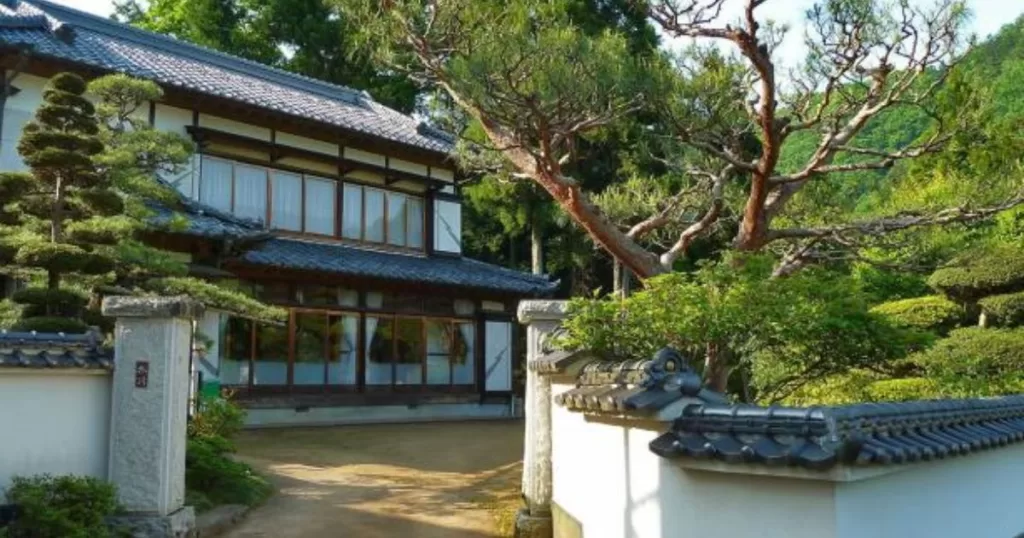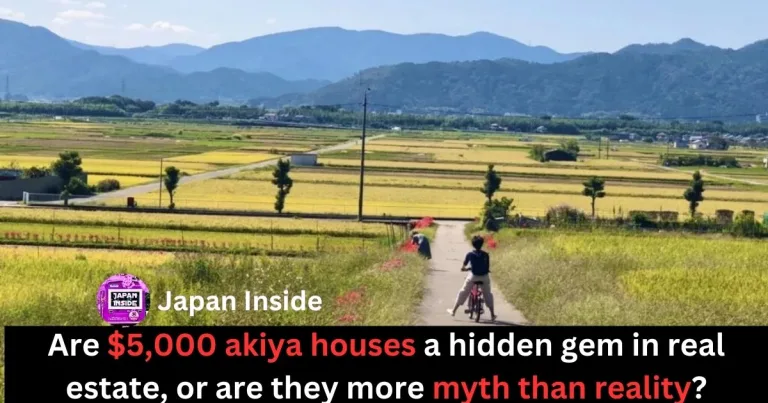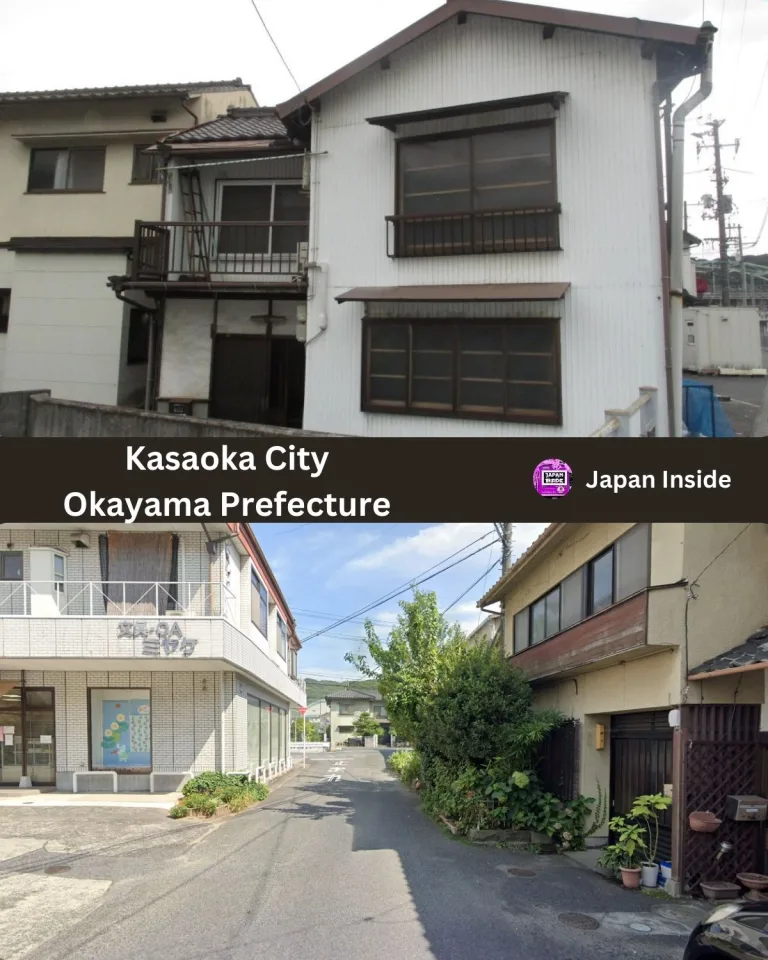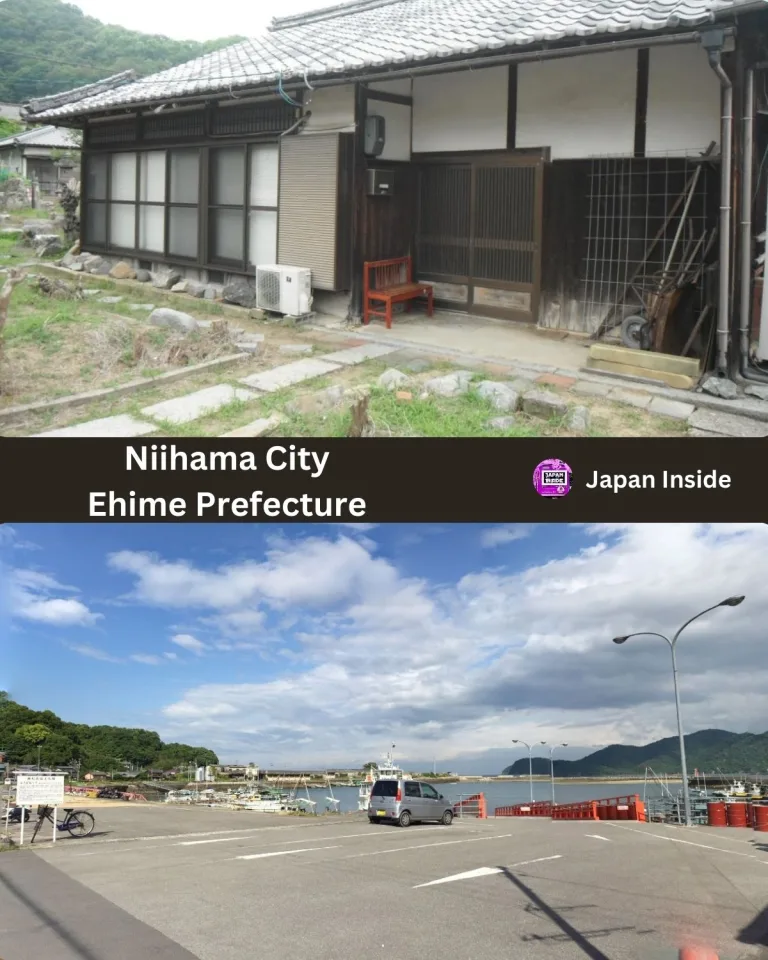How One Savvy Expat Exploited Japan’s Real Estate Loopholes for Massive Gains
When a Redditor set out to sell his Tokyo apartment, he had no idea the rollercoaster ride that awaited him. But through shrewd negotiation tactics and playing competing agencies off each other, he managed to slash the standard 3% agency commission down to an unheard of 0-1%.
His wild but highly educational saga, posted on the JapanFinance subreddit, provides an illuminating glimpse into the quirks of Japan’s real estate market.

Buying Property as a Foreigner
The Redditor’s property adventures began 5 years ago when he purchased a 50 sq meter 2LDK apartment in central Tokyo for 50 million yen ($325,000).
Check Out These Akiya Deals:
Key takeaways for foreigners looking to buy:
- Permanent residency is not required to get a mortgage
- Banks like Prestia offer the same interest rates to PR and non-PR holders
- Non-PR holders need a 20% down payment vs 0% for PR holders
- Japanese language ability helps but is not essential
However, he cautions that some banks discriminate against pregnant women, deeming them a higher risk of defaulting if they don’t return to work. While common practice in Japan, this is illegal in Western countries.
Finding an Agent and Getting a Mortgage

When it came time to sell, the Redditor first tried renting out his apartment. But the math didn’t work out after factoring in higher investment loan rates, renovation costs, and property management fees.
With his Sumitomo bank loan requiring he sell within 6 months, the clock was ticking. He engaged the same Sumitomo agent who helped him buy his new Saitama property, signing an exclusive sales agreement at a discounted 1.5% commission.
Cutting Commissions to the Bone
When that agent failed to deliver results after 3 months, the Redditor began working with 3 other agencies on a non-exclusive basis. Sumitomo raised their fee to 3%, but by saying he had 1.5% offers elsewhere, he negotiated the same from the other big agencies Mitsui and Tokyu Livable.
Tokyu Livable hustled hard and within 3 weeks brought in a motivated buyer. When Sumitomo suddenly found a competing buyer, Tokyu Livable made the unprecedented move of dropping their commission to 0% to secure the deal for their client.
The Redditor got Sumitomo to match.
Financing Fall Through
In a gut-wrenching twist, Sumitomo’s buyer, who was pre-approved for a mortgage, ended up being denied the loan because the wife was a cancer survivor. Banks deemed this too risky, something that would be blatantly illegal in the U.S.
With the clock ticking again, the Redditor went back to Tokyu Livable. They managed to bring in another buyer within a month, ultimately getting the deal done at a 1% commission.
The Bottom Line
When all was said and done, the Redditor sold his property for 63 million yen after purchasing it for 50 million five years prior. After paying off his mortgage, he walked away with 13 million yen (~$85k USD) in profit, an outstanding return on investment.
Advice for Sellers
This Redditor’s key pieces of advice:
- You don’t need PR or to speak much Japanese to get a housing loan. You probably just need a decent paying job and 20% down payment.
- Most banks that he spoken to have the same interest rates for PR and non-PR. The only difference is with PR you can get 100% of the loan and without you need a 20% down payment.
- Banks can give ‘pair loans’ which you can apply for together with your spouse. He thought this was just interesting as you can’t have joint bank accounts here.
- It seems most people sell the property they’re living in before they buy a new property. He did the opposite. It worked out in the end for him but he understood why most people don’t do it.
- Many (most?) banks will not give pregnant women loans because a lot of women don’t return to work after giving birth. This is completely legal discrimination in Japan but illegal in other parts of the world (like the US).
- It seems banks don’t like people to have more than one loan, and if you have more than one personal loan, some banks will give you a timeframe that you have to sell one of the properties so you only have one loan
- If you rent a property you previously lived in, legally you’re supposed to switch your loan type to an investment loan, after which your interest skyrockets. Some people don’t tell the bank (though this is not what he did, and he would never advise it)
- When you sign up to sell a property, many agencies have three types of contracts: two variations of exclusive and a non-exclusive agreement. The term is typically 3 months.
- Suumo is a general listing site that can be used by any agency and not exclusively operated by Sumitomo
- When you sign exclusive agreements, you can almost always get a discounted rate, usually half (1.5%).
- If you can negotiate well enough, you can even get 1.5% non-exclusive fees with agencies, even large ones
- Though rare, it is possible to get over an asking price. But yes, he thinks this is pretty rare as ‘bidding wars’ aren’t really a thing
- Though rare, a person pre-approved for a loan could also be denied the actual loan in that 1-2 month-ish application process. He had agents say there’s like 1-5% chance of this with some agents saying they’ve never seen this happen (though it did happen to him).
- Banks can deny you a loan if you’ve had an unfortunate medical history, even if you’ve recovered
- On most documents, you can probably write your address, name, etc in English instead of Japanese. It’s almost never ‘required to write in Japanese’ in my experience except maybe on the final documents on closing day.
- At least in his experience, he would never advise someone to sign an exclusive agreement with any agency unless they have proven experience working with that agent. He believes it best to work with a bunch of agencies, find which one you like and then go exclusive if there are good benefits.
- A potential buyer may want to offer less of a deposit than 5%. A lot of things in real estate are negotiable.
- Selling real estate is a stressful experience, but if you do your research and believe realistically in the value of your property, something should come up, especially if you have a good agent
Comparison to the U.S.
While negotiating commissions down to 0-1% is unheard of in the States, where sellers typically pay 5-6%, this Redditor shows it’s possible in Japan for savvy negotiators.
The requirement to sell within 6 months or have the bank seize the property also differs from the U.S. where owners can typically take their time to sell.
Finally, the blatant discrimination against pregnant women and cancer survivors in lending would result in major lawsuits in the U.S.
User Comments
“As a fellow real estate purchaser, I felt that I should add that you can indeed get loans without PR but your choices will narrow significantly. Of course you’ll have to pay a bigger down payment and you might get worse terms.”
“Two points to add: this entire experience is in Kanto. Major city vs more inaka will be a very different experience. Many of the large central banks won’t lend outside of the metro areas, and the banks in the sticks can be really picky, if not outright racist.”
“I agree with you, it’s frustrating/insulting to be making good money with no intention of quitting only to be completely discounted as an income source if you happen to be pregnant. It was my SECOND kid too, so I’d clearly already had a kid and gone back to work once before!”
“Probably a salient point, specially central Tokyo’s real estate market has seen large, outsized gains in the recent years. But applaud the info rich post, very useful and worth the read to Tokyo long term residents.”
“Negotiations are doable in Japan, believe it or not. You just need to stick to your guns.”


